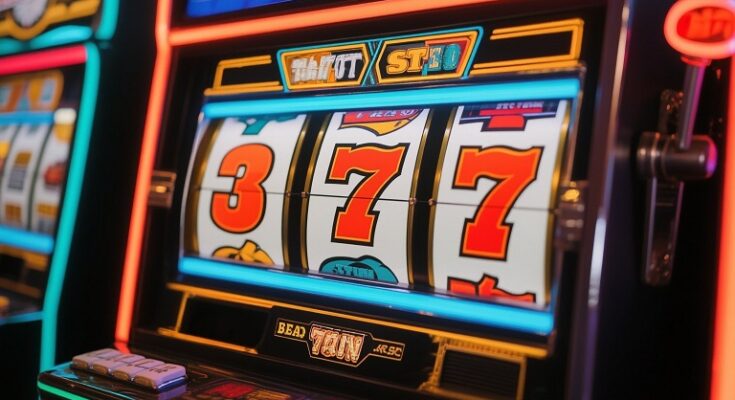Out of all games of gambling, slot machines are a world of their own. With their lights, spinning wheels, and other trinkets, they entice a huge chunk of players from all around the globe with a near miraculous grand prize. But with all of that flashy stuff, the real money is in the computers and math that govern what actually happens in the machine. The mathematics behind it all is synthesized in the Random Number Generator (RNG), the computerized head that handles fairness, unpredictability, and regulation all at once. Players exploring platforms like the Glory Casino Bangladesh login can experience how these RNG systems work in practice, ensuring that every spin is truly random and fair.
What Exactly is a Random Number Generator?
To start, a slot machine Random Number Generator is an algorithm designed to determine a set of numbers that are deemed ‘random.’ Each slot machine is divided into different reels, and every reel is divided into different segments, symbols, or pictures. Each time a player spins the reel, a random set number is generated. Based on this set number, the corresponding reset symbols are lit up.
RNGs can be divided into two distinct classes:
- True Random Number Generators (TRNGs): rely on chaos as in the case of radioactive decay or electronic noise, or on some other physical phenomena, to generate randomness.
- Pseudo Random Number Generators (PRNGs): generate sequences of numbers that in appearance are random, but are actually deterministically computed from an initial seed value.
The dizzying speed of electronic slot machines, and the ease and mathematically ascertainable fairness of online casinos, makes PRNGs the default RNG class.
The Importance of RNGs in Slot Machines
RNGs became central to slot machines that were digital, as opposed to those that were mechanical in nature, for three distinct reasons:
- Fairness: Every spin is independent and unbiased, without any recollection of past plays.
- Security: Protection against manipulation from outside players or insiders.
- Scalability: Complex games with multiple reels, bonus features, or progressive jackpots remain fair.
Mathematics in Probability Concerning Slot Machines
To better appreciate this, let us take a simple slot machine with three reels and assume that each reel has ten symbols. The possible outcomes in this slot machine setup equals:
10 × 10 × 10 = 1,000
If the jackpot for this machine is three “7” symbols, then there is 1 winning combination and 999 losing combinations. Therefore, the chances of winning in this case is 0.1%.
In reality, slot machines are more complex with many more symbols and a number of other features and mechanisms. Designers must balance player engagement and casino profitability — this is referred to as the house edge.
Two additional key factors are:
- Return to Player (RTP): The expected percentage of total wagers a slot machine pays back over millions of spins. For example, a 96% RTP means $96 returned per $100 wagered on average.
- Volatility (variance): Defines risk. High volatility = rare but big wins; low volatility = frequent but smaller wins.
Testing the Fairness of RNGs
Without player trust, RNGs would not exist. Independent labs like eCOGRA, GLI, and iTech Labs test slot RNGs to ensure fairness. They:
- Simulate millions of spins to confirm results match probability distributions.
- Verify RNGs do not cycle or bias outcomes.
- Ensure seed values are secure and unpredictable.
Once testing is complete, certification is granted to assure both casinos and players that the game is fair.
Myths Surrounding Slot RNGs
Despite years of research, slot machine RNGs are still misunderstood. Common misconceptions include:
- “Slots are due for a win.” – False. Each spin is independent.
- “Online slots are easier to rig.” – False. Licensed casinos use certified, encrypted RNGs.
- “Playing at certain times boosts winning odds.” – False. RNGs run continuously, even when machines are idle.
A Simplified Example
Consider a five-reel slot machine with 20 symbols on each reel. Each symbol is converted to a number that determines the outcome. After pressing spin, the RNG might generate:
342, 918, 127, 654, 210
Each number corresponds to a stop on a reel, deciding whether the player wins or loses. The process takes less than a millisecond — the spinning reels are only a visual effect.
The Ethics of the RNG
While RNGs ensure fairness, they cannot eliminate risk. Slots are meant for entertainment, not profit. Regulators often require:
- Publishing RTP numbers openly.
- Offering self-exclusion tools and deposit limits.
- Monitoring player behavior to detect harm.
This blend of responsible gaming practices and mathematical transparency helps balance profit with player protection.
The Advancements of RNGs
The future may see blockchain technology and quantum computing redefine RNGs:
- Blockchain: Immutable ledgers allow transparent proof of fairness.
- Quantum RNGs: Harness quantum phenomena for truly unpredictable randomness.
Adoption of these systems could provide global players with provably fair, transparent gaming experiences.
Conclusion
The slot machine is both a gambling device and an example of the intersection between mathematics, behavior, and regulation. Random Number Generators are the unseen engines of fairness that ensure every spin is independent and unbiased.
In the world of gambling, RNGs are often considered the sacred secrets behind slots. Understanding them doesn’t guarantee wins, but it can transform the player’s perception of fairness and trust in modern digital casinos.



